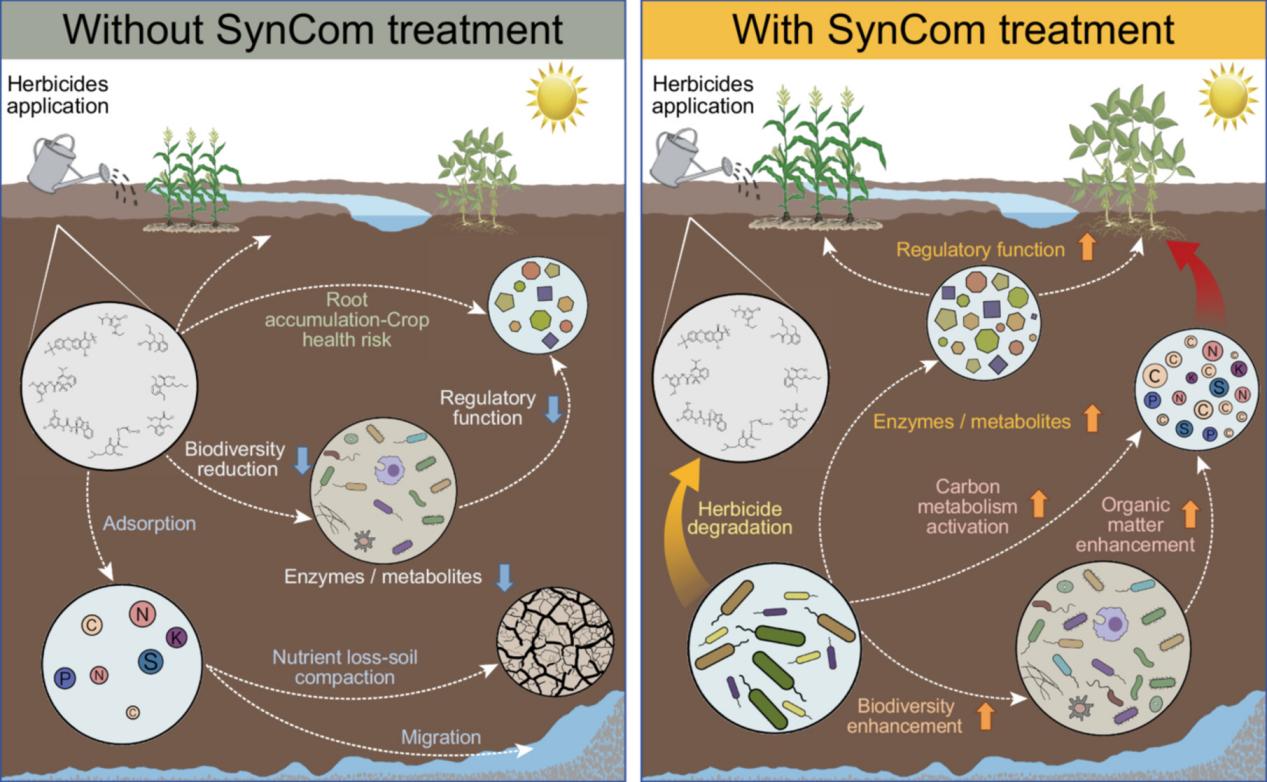
Extensive herbicide residues in the black soil of northeastern China are considered a significant agricultural pollution threat, yet effective bioremediation of this complex and persistent mixture remains a challenge. Prof. CHU Haiyan and his team identified 16 bacterial species that associated with these herbicide residues in situ, nine of which were culturable and could degrade multiple herbicides. From these strains, they constructed a four-member synthetic microbial community (SynCom) that degrades multiple herbicides, stabilizes colonization, increases soil bacterial biodiversity, and alters soil enzyme activity. Under laboratory conditions, the SynCom degraded eight herbicides within 48 h with >60% efficiency, and accumulated carbon on the cell surface of the constituent species. In black soil microcosm trials, the SynCom achieved 60%−99% degradation efficiency of the endogenous herbicides over 35 days and was able to consistently maintain biomass above 104 cfu/g soil. Additionally, SynCom application resulted in an accumulation of carbohydrate-active enzymes and microbial necromass-associated carbon, which suggests activation of soil microbial carbon metabolism. In support of this, metagenomic analyses identified a significant increase in the abundance of genes involved in the tricarboxylic acid cycle, pyruvate metabolism, and glycolysis. This SynCom represents a compelling bioremediation solution that simultaneously improves soil microbial carbon metabolism activity in polluted soils.
The study published in iMeta in July.

Graphical abstract
Attachment Download: